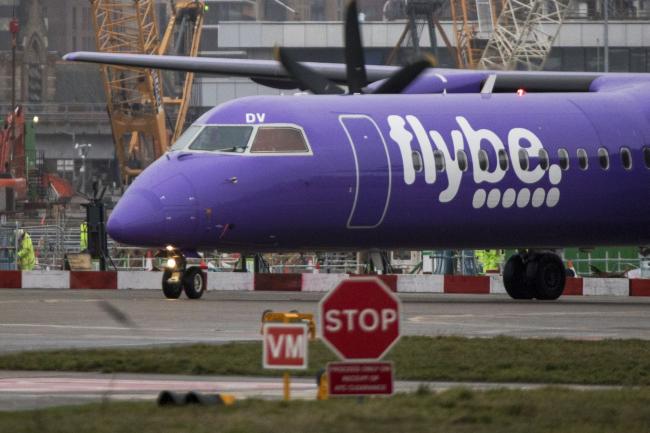(Bloomberg) -- Britain agreed to back a plan to rescue regional carrier Flybe from a collapse that would have left parts of the U.K. with diminished transport links just as the country prepares to leave the European Union.
The government reached an agreement with the carrier’s shareholders to ensure U.K. regions remain connected, Business Secretary Andrea Leadsom said Tuesday in a tweet, without disclosing details.
The deal followed talks with Flybe parent Connect Airways, made up of Virgin Atlantic Airways Ltd., Cyrus Capital and Stobart Group. Bloomberg reported earlier that discussions concerned a suspension of air passenger duty.
The rescue is unusual for a Conservative administration in a country that has long eschewed state bailouts. Monarch Airlines, Flybmi and Thomas Cook Group Plc all failed without government help in the past 2 1/2 years. But with Brexit two weeks away, Flybe’s unique business profile in serving provincial towns and cities made it a different proposition.
While the airline carried only 8 million passengers last year, compared with almost 100 million at EasyJet Plc, it ranks No. 1 on U.K. domestic routes and provides vital links to London and the continent from cities spanning Belfast in Northern Ireland to Exeter in England’s far southwest and Inverness in the Scottish Highlands.
The British Airline Pilots’ Association said Monday that if Flybe didn’t exist, “it would have to be invented” to maintain crucial links and support the economy. A collapse would effectively leave some locations without an air service or reliant on rail journeys spanning many hours, and Prime Minister Boris Johnson earlier told the BBC he understood that the U.K.’s infrastructure was deficient in some parts of the country.
“This will be welcome news for Flybe’s staff, customers and creditors and we will continue the hard work to ensure a sustainable future,” Leadsom said of the rescue on Twitter.
Flybe was delisted in March after its purchase by Connect Airways for 2.2 million pounds ($2.9 million), with the consortium also providing 100 million pounds in rescue funding. It had struggled for years with the narrow margins on regional routes, where demand is lower, together with fluctuating fuel prices and uncertainty surrounding Brexit.
The carrier operates 68 planes on almost 140 routes serving 56 cities across the U.K. and Europe. Some of its flights, like a 130-mile service from Cardiff to Anglesey off the north Welsh coast, are among the shortest in the industry.
(Updates with political context starting in fourth paragraph)
